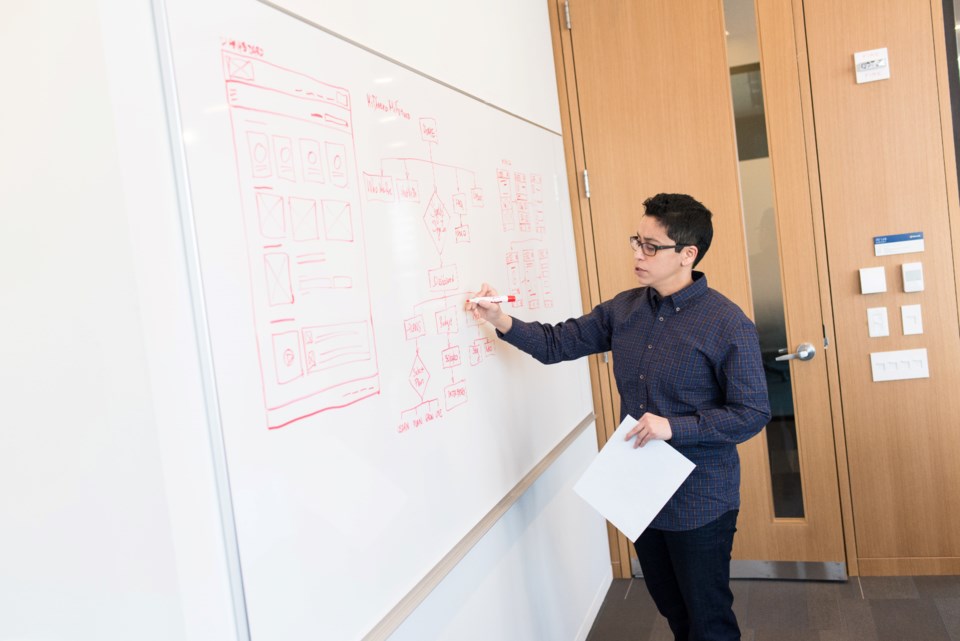Editor’s note: This story was originally published by Boulder Reporting Lab and was shared via AP StoryShare.
In the Boulder Valley School District, some substitute teachers earn less money than their students.
The district’s substitutes, many of whom have one or more college degrees, are paid a daily rate starting at $100, which averages to about $14 per hour with no benefits and no union protections.
Last year, that rate was bumped to $140 with the help of federal Covid-19 stimulus money. This year, this district said that money was used up. So it ended the bonus.
“We all took a pay cut,” said Cynthia Allison, a 71-year-old retired teacher from Boulder and current BVSD substitute. “I think that discouraged people.”
The discouragement came at a bad time. Substitute teachers are in high demand. Boulder Valley started the school year with a pool of substitute teachers half of what it used to be. The shortage is forcing teachers and staff to fill in for others. Too few substitutes was one of the reasons the district cited for cancelling classes on the Friday after Veterans Day.
Boulder Valley substitutes are paid less than those in many neighboring districts, including St Vrain Valley, Adams County and Weld County. Meanwhile, the teachers they support are paid among the highest public school salaries in the state.
“At the district level, they’re not showing that they really, truly value us and the job we’re doing,” said Robin Stainmayer Walter, a 50-year-old former full-time teacher from Superior who substitutes in the district.
To fill in the gap, the district is hiring more substitutes without bachelors degrees and less experience in the classroom. It has called on parents, volunteers and central office staff to take up subbing. It is accepting teachers with a one-year substitute license, which requires a high-school diploma, rather than its typically required three- to five-year licenses, which require a bachelor’s degree.
The district also posted on Facebook that it was offering a hiring bonus of $250 and doubling the daily rate to $200 on Fridays, days when the district has said it is the most difficult to find substitutes.
That the district was seeking to bring in new substitute teachers struck a nerve for those who continue to show up to work, especially during the pandemic.
“They don’t make mention that we continue to sub for them,” Stainmayer Walter said.
Pay not the problem, BVSD says
Since the start of the school year, substitute staffing levels have increased to 682, which compares to about 900 substitutes prior to the pandemic, according to Mike Gradoz, BVSD’s assistant superintendent of human resources.
Gradoz said he doesn’t think pay is causing the shortage. Similar to trends affecting labor markets across the nation, Gradoz said many substitutes have retired. Others have moved. And the shortage is higher in elementary schools than it is in high schools, he said, suggesting some substitutes are concerned about teaching in schools where kids are not vaccinated. Children ages 5-11 became eligible for the vaccine this month.
Gradoz also said school districts that have raised pay haven’t seen vacancies filled. And in the past, when districts hired substitute teachers full-time at higher rates, he said, the “the return on investment” wasn’t as good as expected.
Gradoz acknowledges the low staffing levels. But he stopped short of calling it a shortage.
“It’s more people not wanting to work full-time, people only wanting to work at certain schools and people only wanting to work one day,” he said.
Gradoz knows many substitutes are frustrated they could earn more money working at a fast food restaurant rather than teaching students.
“I get it,” Gradoz said. “That’s definitely a choice people have to make. I do understand that that comparison doesn’t look good and it makes them feel not valued. But I think it’s the experience and the time with kids that a lot of our subs like.”
Complicating the situation for Boulder Valley is how Colorado pays for public schools. The state constitution limits how much money districts collect in property taxes, among other constraints. The state’s per pupil funding is in the bottom third of the nation, according to recent data from the U.S. Census.
“If we’re spending more in one place, it’s going to come from somewhere else,” said Randy Barber, the communications officer for the district. “With limited resources, we are focusing those resources on the places that benefit students most.”
This includes paying substitutes more on Friday or bumping pay to $140 for long-term subs, he said.
Adding ‘a lot of stress’ on a strained system
In the meantime, fewer substitutes in the classroom is more work for teachers.
Many are spending less time prepping lessons and reviewing students’ work because they have to cover other teachers’ classes. When Allison, a substitute teacher in Boulder, called in sick before a teaching at Creekside Elementary, she said the school principal ended up teaching the class in her place.
“It’s really adding a lot of stress and strain on the system,” Amie Baca-Oehlert, the president of the Colorado Education Association, said of the substitute teacher shortages across the state.
Students reeling from a year of remote learning are now attending larger classes and seeing courses cut. Sometimes school is canceled altogether.
“When you don’t have the staff to meet the needs, it’s the students who are the most impacted,” Baca-Oehlert said.
Allison, who is retired, said she doesn’t necessarily need higher pay for her work. But better pay could help teachers earlier in their careers learn skills by subbing in experienced teachers’ classrooms.
There’s an art to teaching, she said, and it takes time to learn. It’s a profession, she said.
“I think substitutes should be acknowledged as essential parts of the schools,” she said. She added, “You should be paid for the fact that you can handle 35 kids in a classroom for eight hours per day. That’s quite a task.”


.jpg;w=120;h=80;mode=crop)
